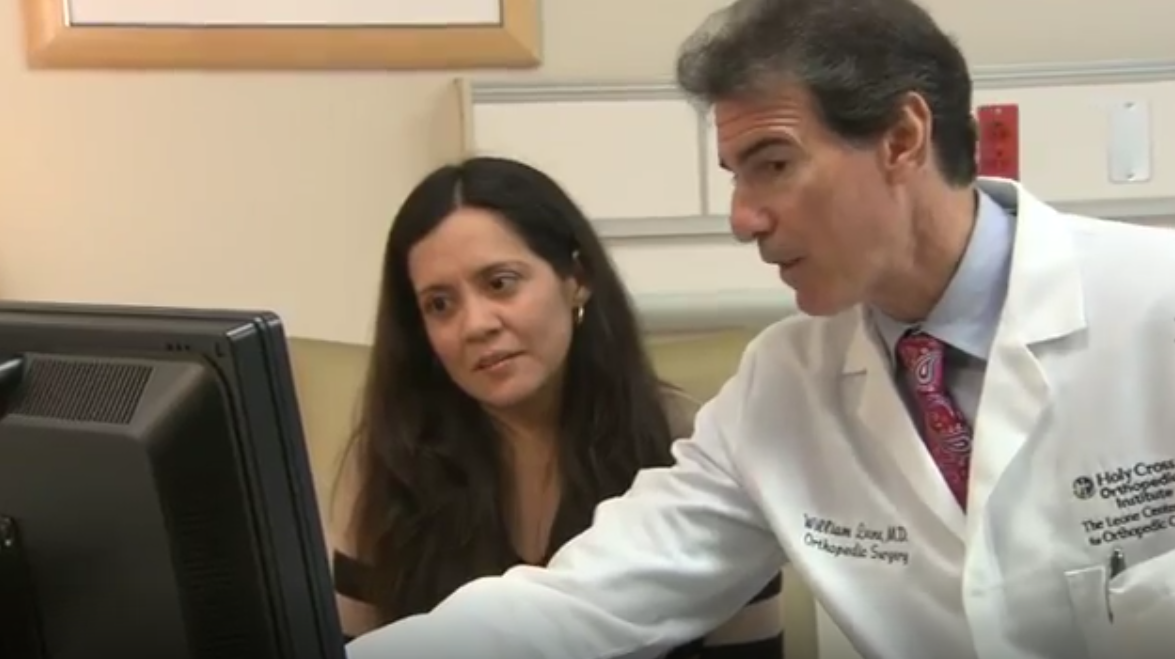We encourage you to ask any surgeon that you are considering these five questions. Here are Dr. Leone’s responses.
How many surgeries of this type do you perform each year?
Dr. Leone’s practice is focused exclusively on hip and knee replacement surgery. He has completed more than 15,000 joint operations over the course of his career. He has reconstructed 400 to 500 joints consistently per year over the past ten years. An experienced surgeon who performs the same procedure over and over again, year after year, subtly improving it and working with designated teams, can achieve better, more consistent outcomes.
Dr. Leone’s high volume practice has enabled him to fine-tune his systems and procedures. As a result of his experience, his surgeries often move along more efficiently and takes less time. This is significant. A shorter surgery means that the incision is open to the environment for less time which reduces the risk of wound contamination. It also means that your body will spend less time in an awkward position, lowering the incidence of deep venous thrombosis (DVT), a condition in which a blood clot forms in a vein that is deep inside the body. Moving along efficiently does mean rushing.
Most importantly, a surgeon who performs a high number of surgeries will see nuances and be able to handle the unexpected more expertly than a surgeon who is not as experienced.
What is your infection rate?
Performance data has consistently shown that Dr. Leone’s infection rate and complications rate, including readmission to the hospital, is less than peer orthopedists regionally and nationally. This data also has shows better patient satisfaction scores and shorter hospitalizations.
An infection after a total joint replacement is a very big deal. If the infection is deep or below the fascia, then the artificial joint is also infected. Further surgery will be needed, and very possibly, the prosthetic joint will need to be removed. The infection will be treated with antibiotics, and hopefully, a new joint can be re-implanted with yet another surgery if the infection is cured. Dr. Leone believes that the best treatment for infection associated with a total joint is prevention. For this reason, at the Leone Center, every effort is made to prevent a total joint from getting infected.
What is your incidence of short-term complications?
Dr. Leone’s incidence of complications, such as dislocations, wound problems, blood clots, or need for manipulation, has been remarkably low.
Dr. Leone attributes much of his success to his hands-on approach, attention to detail, and highly qualified, seasoned staff. He performs all of his surgeries personally. His teams – both in the operating room and in the office – are mature and stable, and many have been with him for more than twenty years. He has remained at one location in one hospital, enabling him to perfect his technique and achieve consistent outcomes.
As a key member of Holy Cross’ leadership team, he has contributed to Holy Cross’ stellar reputation as a top regional hospital for orthopedics. Castle Connolly Medical Ltd., a health care research firm, named Dr. Leone one of Florida’s “Top Orthopedic Surgeon” for 16 consecutive years, from 2010 – 2025. Dr. Leone has built his reputation on referrals from patients who have encouraged the people they care about to choose Dr. Leone as their orthopedic surgeon.
What is your incidence of long-term complications?
Dr. Leone has a very low incidence of long-term complications, such as infection, loosening, prosthesis breakage, leg length inequality, residual limp, or nerve damage. Here are some of the ways he mitigates these risks:
- Optimizing patients before surgery. Patients go into surgery feeling knowledgeable and empowered.
- Pre-operative fluids and meds as well as the type of anesthesia that is used to minimize pain and avoid common, post-operative complications.
- Body exhaust suits which lessen further any chance of contamination.
- Special surgical closure and antibacterial dressings resulting in a better sealed wound. This also results in a “plastic surgery” closure.
- Surgical techniques to specifically address optimal and gentle soft tissue handling and balancing in hip replacement using a pelvic alignment level instrument invented by Dr. Leone.
- Surgical techniques to specifically address optimal and gentle soft tissue handling and balancing in knee replacement using computer navigation, robotics and kinematic sensors.
- Dr. Leone’s surgical teams which have worked together for years, thereby greatly improving the safety and efficiency of the procedure.
How long have you been implanting your current prosthesis, and why did you select it?
To get the best and most reproducible results from any system or prosthesis, it must be used and studied repeatedly. Change is appropriate when it is a true improvement and can be shown to be safe and durable.
Dr. Leone has been using the same brands of hip prosthesis for more that 20 years and the same brand of knee prosthesis for more than 15 years. Although all of these implant systems have evolved with an increased number of prosthetic sizes, revision applications, and new instruments, the underlying design and principles have remained the same. Now time tested, they are all well-documented in the literature as safe and effective.




